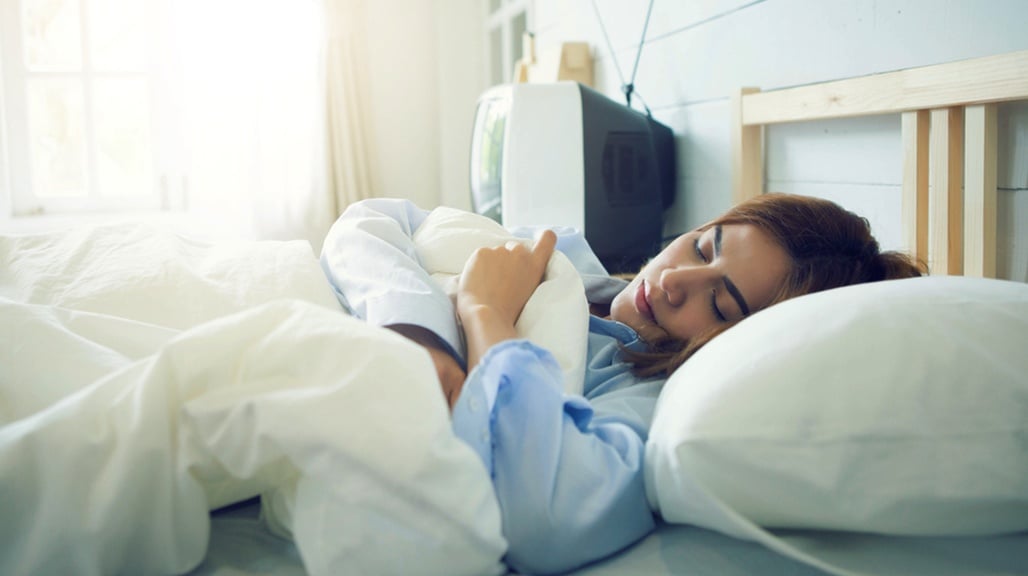Dos and Don’ts for a Better Sleep
 Contributed by
Liza Rowan
October 28, 2016
Contributed by
Liza Rowan
October 28, 2016

“Sleep is the best form of meditation” – Dalai Lama.
I struggle to find 10 minutes to meditate during the day, but I always ensure to get my 7+hours of sleep, as I know I don’t operate well without it. Based on these wise words, it therefore seems that I am fitting in many hours of meditation every night.
For something that we spend a third of our lives doing, we often underestimate the importance of this natural, free ‘drug’.
Some of its benefits are:
- Our body and mind get time to shut down and recuperate
- Hormones are released in our sleep, including our growth hormone – didn’t your mama tell you, ‘you grow in your sleep’?
- This same hormone is responsible for the regeneration of many of our organs – including our liver and muscles, and it also encourages our fat stores to break down
On the other hand:
- Lack of sleep can lead to chronic fatigue, which in turn can cause restlessness, and therefore lead to insomnia – so it’s a big viscous circle!
- Ongoing sleep deprivation leads to poor concentration and a lack of energy – meaning unproductivity at work and at play
- There are also safety concerns where sleep deprivation is concerned – machinery should not be operated, cars should not be driven, nor should important decisions be made!
Things that contribute to poor sleep are:
- Overstimulation before bedtime
- Uncomfortable physical surroundings
- Poor digestion or other bodily discomfort
- Anxiety or stress
- Sleep Apnea, which needs to be ruled out by your doctor
Dos And Don’ts Of A Good Nights’ Sleep
Don’ts:
- Avoid caffeine later in the day, especially if sensitive to it. Drip coffee actually contains more caffeine than a strong tasting espresso – so don’t be tricked into thinking that because it’s light in flavour that it’s light in caffeine.
- Caffeine also exists in medications, teas, chocolate, and energy drinks, so be aware of the levels that might prevent you from getting a good night’s sleep. (See my article on Java…)
- Avoid heavy, rich, or spicy foods late in the day, and steer clear from trying any new foods which might cause indigestion and discomfort
- Although exercise can improve sleep quality, it is best to avoid doing so right before bedtime, as it can have the opposite effect. Get your workout done earlier in the day
- Drops in blood sugar levels can cause night awakenings; to stabilize blood sugar levels, reduce refined carbohydrate and alcohol intake, and enjoy a wholesome, healthy diet
- Reduce stimulation from TV and electronic devices before bedtime, and trial a ‘no electronics in the bedroom’ rule – you’ll be surprised how liberating it is!
Dos:
- Sip on a warming, relaxing cuppa before bedtime – recommended to help sleep are chamomile tea, valerian root tea, and passion flower teas
- A warm bath or shower with lavender essential oil can help relax you before bedtime; keep lavender potpourri at your bedside for a relaxing aroma.
- Ensure bed and pillows are comfortable, and keep your bedroom dark by using shut-out blinds; avoid artificial lighting and coloured lights from electronic devices
- Yoga, meditation, or gentle stretching can help relax before bedtime – you can also lightly contract and release muscles in turn, so that overall your body is relaxed and ready to rest
- Some nutrients are known to help – particularly Vitamin B6 and Niacin (B3); the best foods sources for these are meat, fish, eggs, whole grains. Magnesium also helps as it is a natural relaxant, available in dark leafy greens, almonds and other nuts, fish, whole grains, and dark chocolate! Should you wish to supplement, do get advice from your practitioner or local reputable health store for the best natural brands to suit your needs
- The amino acid Tryptophan is metabolized into the neurotransmitter serotonin, which is responsible for helping us sleep. Food containing this amino acid are eggs, chicken, dairy, nuts & seeds, complex carbs. It is also available via supplements, but again, check with your practitioner.
Overall, getting into a simple comforting routine, heading to bed at a similar time every night, and rising at the same time every morning paves the way for a good nights rest.
With years of practice, and making some of the above simple modifications, I can now confidently state that I’m so good at sleeping, I can do it with my eyes closed!
Visit the Health & Vitality page to find out more about Liza's business.
This article was originally published on Health and Vitality blog and has been reposted on Executive Lifestyle with the permission of the author.
Edited by Michelle Sarthou
Image credit: Shutterstock
Did you enjoy this post? Please comment, like and share!











Sorry, the comment form is closed at this time.